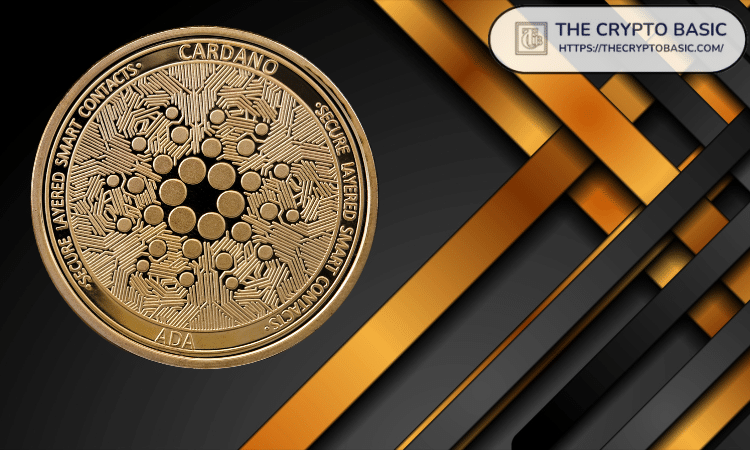Venture capitalist Justin Bons discusses centralization concerns surrounding Cardano due to its Genesis keys.
In a recent disclosure, Justin Bons, founder of Europe’s biggest crypto fund, Cyber Capital, discussed concerns surrounding Cardano’s centralization. Bons asserted that Cardano’s governance model is overly centralized, contradicting its claims of being a decentralized blockchain.
Bons Argues Against Cardano Decentralization
He stressed that Cardano’s control structure is tightly held by its development company, Input Output Global (IOG). This is due to the company’s possession of a set of multi-signature keys called the Genesis Keys. Of the seven keys, IOG controls five, a reality which Bons believes grants them significant power over the network.
1/8) Cardano has "genesis keys"; a multi-sig that controls all rules!
ADA is extremely centralized, as this is uniquely hardcoded into the protocol
IOG controls 5 out of 7 keys & can unilaterally change anything!
Ironic, as ADA claims to be the "most decentralized" chain: 🧵
— Justin Bons (@Justin_Bons) May 20, 2024
Bons noted that the Genesis Keys enable seamless code changes without the need for a hard fork, allowing IOG to make major modifications, such as halting the chain or changing emission schedules, without consensus. This level of control, he claimed, is rare for an L1 network.
The Genesis Keys
For context, the governance framework involving these Genesis Keys materialized in the Shelley mainnet upgrade in July 2020, which aimed to decentralize the network by introducing staking pools and other mechanisms. Of the seven keys, five must agree to implement a governance decision.
Initially, the keys were distributed among Cardano’s founding entities, with IOG holding three, the Cardano Foundation (CF) in possession of two and EMURGO equally holding two. However, the Cardano Foundation delegated their control to IOG, consolidating IOG’s influence and giving it absolute control.
In his remarks, Bons called attention to Cardano founder Charles Hoskinson’s disapproval of this reality and his desire to enforce a change. Notably, Hoskinson discussed the keys in a broadcast last October. He noted that they exist to manage system parameters and facilitate hard forks.
The Cardano founder highlighted the introduction of CIP-1694 to improve governance, proposing a constitutional committee to formalize decisions. He stressed that this proposal is crucial for Cardano’s future, even stating that he would burn the Genesis Keys if CIP-1694 doesn’t pass, to ensure a better governance framework is established.
Cardano Set to Implement CIP-1694
CIP-1694 is expected to create the bedrock for Cardano’s transition to the Voltaire era, a move which would change the governance model to facilitate more decentralization. This new era would put governance power into the hands of three entities: delegated representatives (DReps), stake pool operators (SPOs) and a constitutional committee.
Jaromír Tesař, a Cardano Delegated Representative, discussed this in response to Bons. But first, he explained the workings of the Genesis Keys, arguing that they do not make Cardano as centralized as Bons presented. Tesař clarified that the keys are merely tools to effect hard forks.
Justin, let me clarify a few things.
Fundamental protocol changes must, first of all, be accepted by full node operators by installing the new version. Genesis keys are only a tool to trigger a hard fork (it is just a change of the major protocol version).
A hard fork cannot be… pic.twitter.com/44WXsH7wMa
— Cardano YOD₳ (@JaromirTesar) May 20, 2024
According to him, they are used to adjust specific protocol parameters, such as staking rewards or block size, but with community approval. For instance, a community vote occurred before the decision to lower the minimum fixed fee from 340 ADA to 170 ADA from Epoch 345.
He also highlighted that no entity has the ability to employ the genesis keys to censor transactions, misappropriate funds, or interrupt consensus. User funds remain secure with their private keys. Tesař assured that the use of genesis keys has defined limits, and does not guarantee IOG absolute authority, as Bons suggested.
However, Tesař highlighted that this current governance structure is set to evolve. The power currently held by IOG will eventually transfer to the Cardano community, with decentralized representatives (DReps) taking over governance actions. Any Cardano holder can become a DRep, promoting broader community participation.
DisClamier: This content is informational and should not be considered financial advice. The views expressed in this article may include the author's personal opinions and do not reflect The Crypto Basic opinion. Readers are encouraged to do thorough research before making any investment decisions. The Crypto Basic is not responsible for any financial losses.



